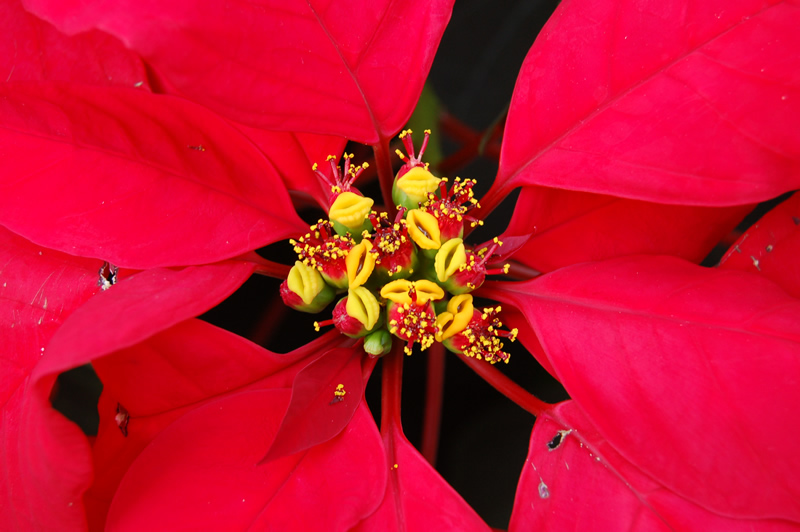Poinsettia Toxicity Facts: Stay Safe

The poinsettia plant, known for its vibrant red leaves and festive appearance, is a staple of holiday decor. However, it has also been the subject of controversy and concern regarding its potential toxicity. As a knowledgeable expert, it's essential to separate fact from fiction and provide accurate information on poinsettia toxicity to ensure a safe and enjoyable holiday season.
Poinsettia Toxicity: Separating Fact from Fiction

The poinsettia plant, Euphorbia pulcherrima, has been mistakenly believed to be highly toxic, even deadly, if ingested. This misconception likely originated from a 1919 incident in which a child allegedly died after eating a poinsettia leaf. However, this claim has been largely debunked, and numerous studies have since investigated the plant’s toxicity. The American Association of Poison Control Centers (AAPCC) and other reputable organizations have found that poinsettia ingestion is rarely severe and usually results in mild symptoms, if any.
Poinsettia Toxicity Symptoms and Treatment
In the event of poinsettia ingestion, symptoms may include mild nausea, vomiting, and diarrhea. In rare cases, individuals may experience allergic reactions, such as skin irritation or hives. If you suspect poinsettia ingestion, it’s essential to monitor the individual’s condition and seek medical attention if symptoms worsen or persist. Treatment typically involves supportive care, such as hydration and monitoring of vital signs.
| Toxicity Level | Symptoms | Treatment |
|---|---|---|
| Mild | Nausea, vomiting, diarrhea | Supportive care, hydration |
| Moderate | Allergic reactions, skin irritation | Antihistamines, topical creams |
| Severe | Rare, requires immediate medical attention | Hospitalization, close monitoring |

Poinsettia Safety Precautions

To ensure a safe and enjoyable holiday season, follow these poinsettia safety precautions: keep the plant out of reach of children and pets, avoid ingesting any parts of the plant, and wear gloves when handling the plant to minimize skin irritation. If you experience any symptoms after handling the plant, seek medical attention promptly.
Poinsettia Alternatives and Substitutes
If you’re concerned about poinsettia toxicity or prefer alternative decor options, consider the following poinsettia alternatives: holly, mistletoe, or amaryllis. These plants offer a similar festive appearance without the potential toxicity concerns. When selecting alternative plants, ensure they are also non-toxic and safe for your household.
- Holly: A classic holiday decor option with bright red berries and glossy leaves
- Mistletoe: A festive and romantic option with white berries and delicate leaves
- Amaryllis: A stunning and vibrant option with large, trumpet-shaped flowers
Are poinsettias toxic to pets?
+While poinsettias are not typically toxic to pets, ingestion can still cause mild symptoms, such as vomiting and diarrhea. If you suspect your pet has ingested a poinsettia, monitor their condition and seek veterinary attention if symptoms worsen or persist.
Can poinsettias cause allergic reactions?
+Yes, some individuals may experience allergic reactions to poinsettias, such as skin irritation or hives. If you experience any symptoms after handling the plant, seek medical attention promptly.
How can I keep my poinsettia plant safe and healthy?
+To keep your poinsettia plant safe and healthy, ensure it receives adequate water and sunlight, and maintain a consistent temperature between 65-70°F (18-21°C). Avoid overwatering, which can lead to root rot and other issues.



